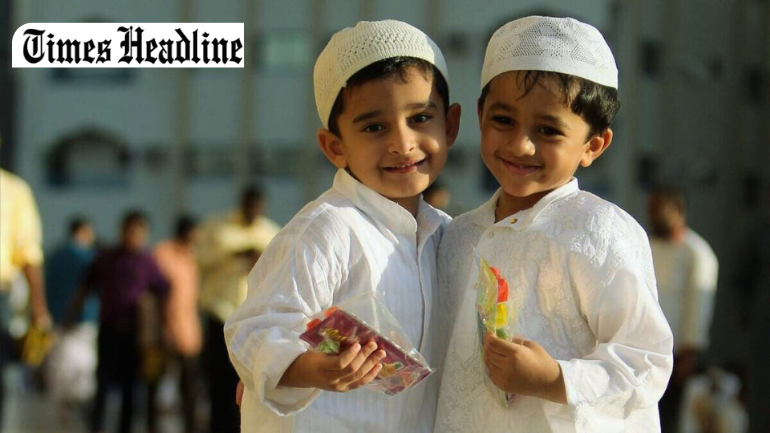Author: Zeeshan Ali
Ramzan, the ninth month of the Islamic lunar calendar, holds profound significance for Muslims worldwide. In India, a land of diverse cultures and traditions, the arrival of Ramzan brings with it a blend of spiritual devotion, communal harmony, and culinary delights. It is a time of fasting, prayer, introspection, and acts of charity, all culminating in the joyous celebration of Eid al-Fitr. However, amidst the vibrant list of festivities, there exists a somber reality marked by the pain of conflict, injustice, and oppression.
The spiritual journey of Ramzan begins with the sighting of the crescent moon, signaling the start of the month-long fast. For Muslims in India, this period is characterized by a deep sense of devotion and discipline. From dawn till dusk, they abstain from food, drink, and other physical needs, focusing instead on spiritual growth, self-discipline, and empathy for those less fortunate. Fasting during Ramzan is not merely a physical act but a spiritual endeavor aimed at fostering self-awareness, gratitude, and compassion.
The breaking of the fast, known as iftar, is a cherished ritual that brings families, friends, and communities together. In India, iftar gatherings are characterized by an array of delectable dishes that tantalize the taste buds and nourish the soul. From the delicious and refreshing Rooh Afza to savory biryanis and succulent kebabs and sweet delicacies like zarda, falooda, laccha, sewaiyan, Paratha, Haleem, etc. The iftar spread in different states of India reflects the rich culinary heritage of the country. These communal meals not only satisfy hunger but also strengthen bonds of kinship and camaraderie, fostering a sense of unity and solidarity among participants.
Amidst the spiritual practices and communal gatherings, Ramadan in India is also a time for introspection and reflection. Muslims engage in increased acts of worship, including additional prayers, giving zakat to the poor and destitutes, recitation of the Quran, and seeking forgiveness for past transgressions. It is a time for self-improvement, moral rectitude, and spiritual renewal. The focus on piety and righteousness serves as a guiding principle for navigating life’s challenges and temptations beyond the confines of Ramzan.
As Ramzan progresses, the anticipation of Eid al-Fitr, the festival of breaking the fast, grows palpable. Families engage in preparations, cleaning their homes, shopping for new clothes, and decorating their surroundings in anticipation of the joyous occasion. The eve of Eid is marked by the sighting of the Shawwal moon, which signals the end of Ramzan and the beginning of the festivities. Children, in particular, eagerly await this moment, as it heralds the arrival of gifts, new clothes, and the freedom to indulge in merriment and celebration.
On the day of Eid, Muslims gather for communal prayers at mosques or Eidgah, dressed in their finest attire. The atmosphere is imbued with a sense of joy, gratitude, and spiritual fulfillment as believers offer thanks to Allah for His blessings and guidance throughout Ramadan. Following the prayers, People embrace each other and shake hands, families exchange greetings, visit relatives and friends, and partake in elaborate feasts.
Central to the Eid celebrations are the sumptuous delicacies that adorn dining tables across the country. Biryani, a fragrant rice dish takes center stage, accompanied by an assortment of kebabs, curries, and side dishes. Sweet treats such as zarda, falooda, laccha and sewaiyan, garnished with nuts and dried fruits, add a touch of sweetness to the festivities.
For children, Eid holds a special allure, marked by the excitement of receiving new clothes, gifts, and Eidi from elders. The streets come alive with the laughter and chatter of youngsters as they roam carefree, savoring the joyous atmosphere and indulging in their favorite pastimes. Street food vendors, offering an array of delectable treats ranging from savory snacks to sweet confections, become popular destinations for children and adults alike.
However, this year, amidst the celebrations, a dark cloud hangs over the joyous occasion. The plight of innocent Palestinians caught in the crossfire of conflict, with Israel, backed by US funding, has marred the collective consciousness of the Muslim community. The images of destruction and loss evoke a sense of helplessness and anguish, overshadowing the festivities with a somber reality check.
Compounding the pain are instances of injustice and discrimination closer to home. Reports of extrajudicial killings of Muslims in Indian jails and acts of violence perpetrated by cow vigilantes have further exacerbated tensions and deepened communal divides. Instead of basking in the spirit of Ramadan and Eid, many Muslims find themselves grappling with feelings of fear, anger, and frustration in the face of systemic oppression and marginalization.
Amidst these challenges, there is a glimmer of hope that shines through the darkness. The resilience of the human spirit, the bonds of community, and the power of faith serve as beacons of light, guiding believers through the turbulent waters of adversity. As Muslims in India and around the world continue to pray for peace, justice, and healing, there remains a steadfast belief in the promise of a brighter tomorrow.
Ramzan in India is a time of spiritual devotion, communal harmony, and culinary delights. It is a period marked by fasting, prayer, introspection, and acts of charity, culminating in the joyous celebration of Eid al-Fitr. However, amidst the festivities, the pain of conflict, injustice, and oppression casts a shadow over the collective consciousness of the Muslim community. Despite the challenges, there remains a sense of hope and resilience, as believers strive to uphold the values of compassion, solidarity, and justice that lie at the heart of Ramadan. As the faithful look towards the future with optimism and determination, they remain steadfast in their belief that brighter days are ahead, where the joys of Ramadan and Eid are not overshadowed by suffering and strife.

